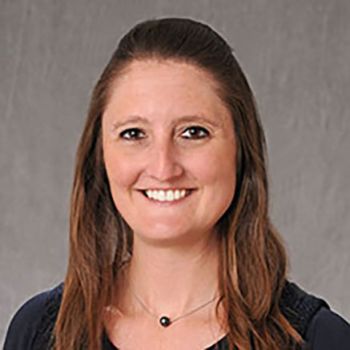
WASHINGTON (July 16, 2020) – The National Institutes of Health has awarded $3.6 million to Rebecca Lynch, PhD, assistant professor of microbiology, immunology, and tropical medicine at the George Washington University School of Medicine and Health Sciences, to investigate HIV-1 resistance to antibody treatments.
Immunotherapy with monoclonal antibodies – single antibodies derived from the same parent B-cell – has been successful against autoimmunity and some cancers. Lynch and her team suggest that treatment options with antibodies, especially redesigned molecules based on broadly neutralizing antibodies (bNAbs), should be explored in the context of the virus.
HIV-1 has the ability to rapidly escape antibodies by generating mutations in its variable envelope gene. This creates an urgent need to gain insight into the virus’ escape from bNAbs, which neutralize various HIV-1 strains, to aid in more effective combination antibody strategies to be used toward HIV-1 therapy, cure, and prevention.
“Antiretroviral treatment is very successful in treating HIV, but it does not cure HIV,” said Lynch. “We are focused on utilizing antibodies as alternative therapies or in strategies to cure HIV instead of just treating it. With this study we hope to provide more tools to use against HIV.”
The team believes that HIV-1 escape from combination bNAbs will be limited when the mutations required to escape all bNAbs exert the maximum replicative fitness cost across diverse viruses, showing that replication cannot easily be restored through compensatory mutations.
Just like antiretrovirals must be taken in combination to be effective against HIV, antibody combinations will need to be used to be effective. To assess the problem of identifying effective combinations, Lynch is collaborating with an interdisciplinary team of researchers from University of California Riverside, University of Cologne, and Los Alamos National Laboratory in New Mexico.
“Through this work we will identify effective combination antibody cocktails that will limit the ability of diverse HIV-1 to escape from antibody pressure,” Lynch said.
The project, titled “Quantifying the fitness cost of HIV-1 resistance to broadly neutralizing antibodies,” will be funded through April 2025.


